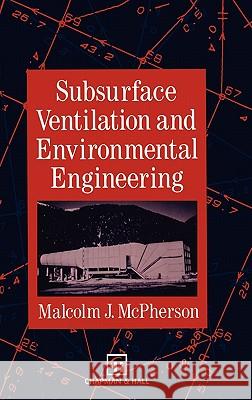Subsurface Ventilation and Environmental Engineering » książka
Subsurface Ventilation and Environmental Engineering
ISBN-13: 9780412353000 / Angielski / Twarda / 1993 / 905 str.
This book has been written as a reference and text for engineers, researchers, teachers and students who have an interest in the planning and control of the environment in underground openings. While directed primarily to underground mining operations, the design procedures are also applicable to other complex developments of subsurface space such as nuclear waste repositories, commercial accommodation or vehicular networks. The book will, therefore, be useful for mining, civil, mechanical, and heating, ventilating and air-conditioning engineers involved in such enterprises. The chapters on airborne pollutants highlight means of measurement and control as well as physiological reaction. These topics will be of particular interest to industrial hygienists and students of industrial medicine. One of the first technical applications of digital computers in the world's mining industries was for ventilation network analysis. This occurred during the early 1960s. However, it was not until low cost but powerful personal computers proliferated in engineering offices during the 1980s that the full impact of the computer revolution was realized in the day-to-day work of most mine ventilation engineers. This book reflects the changes in approach and design procedures that have been brought about by that revolution. While the book is organized into six parts, it encompasses three broad areas.











